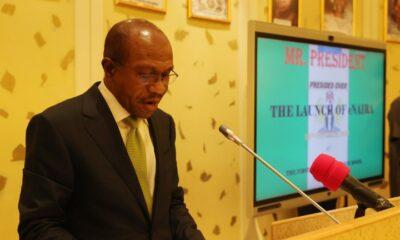President Bola Tinubu has given the green light for a comprehensive N3.3 trillion rescue package.
This ambitious initiative seeks to tackle the country’s mounting power sector debts, which have long hindered the efficiency and reliability of electricity supply across the nation.
The unveiling of this rescue package represents a pivotal moment in Nigeria’s quest for a sustainable energy future. With power outages being a recurring nightmare for both businesses and households, the need for decisive action has never been more urgent.
At the heart of the rescue package are measures aimed at settling the staggering debts accumulated within the power sector. President Tinubu has approved a phased approach to debt repayment, encompassing cash injections and promissory notes.
This strategic allocation of funds aims to provide immediate relief to power-generating companies (Gencos) and gas suppliers, while also ensuring long-term financial stability within the sector.
Chief Adebayo Adelabu, the Minister of Power, revealed details of the rescue package at the 8th Africa Energy Marketplace held in Abuja.
Speaking at the event themed, “Towards Nigeria’s Sustainable Energy Future,” Adelabu emphasized the government’s commitment to eliminating bottlenecks and fostering policy coherence within the power sector.
One of the key highlights of the rescue package is the allocation of funds from the Gas Stabilisation Fund to settle outstanding debts owed to gas suppliers.
This critical step not only addresses the immediate liquidity concerns of gas companies but also paves the way for enhanced cooperation between gas suppliers and power generators.
Furthermore, the rescue package includes provisions for addressing the legacy debts owed to power-generating companies.
By utilizing future royalties and income streams from the gas sub-sector, the government aims to provide a sustainable solution that incentivizes investment in power generation capacity.
The announcement of the N3.3 trillion rescue package comes amidst ongoing efforts to revitalize Nigeria’s power sector.
Recent initiatives, including tariff adjustments and regulatory reforms, underscore the government’s determination to overcome longstanding challenges and enhance the sector’s effectiveness.
However, challenges persist, as highlighted by Barth Nnaji, a former Minister of Power, who emphasized the need for a robust transmission network to support increased power generation.
Nnaji’s advocacy for a super grid underscores the importance of infrastructure development in ensuring the reliability and stability of Nigeria’s power supply.
In light of these developments, stakeholders have welcomed the unveiling of the N3.3 trillion rescue package as a decisive step towards transforming Nigeria’s power sector.



 Naira3 weeks ago
Naira3 weeks ago


 News4 weeks ago
News4 weeks ago


 Naira4 weeks ago
Naira4 weeks ago
 Naira3 weeks ago
Naira3 weeks ago


 Travel3 weeks ago
Travel3 weeks ago


 Jobs3 weeks ago
Jobs3 weeks ago
 Naira3 weeks ago
Naira3 weeks ago
 Investment4 weeks ago
Investment4 weeks ago


















